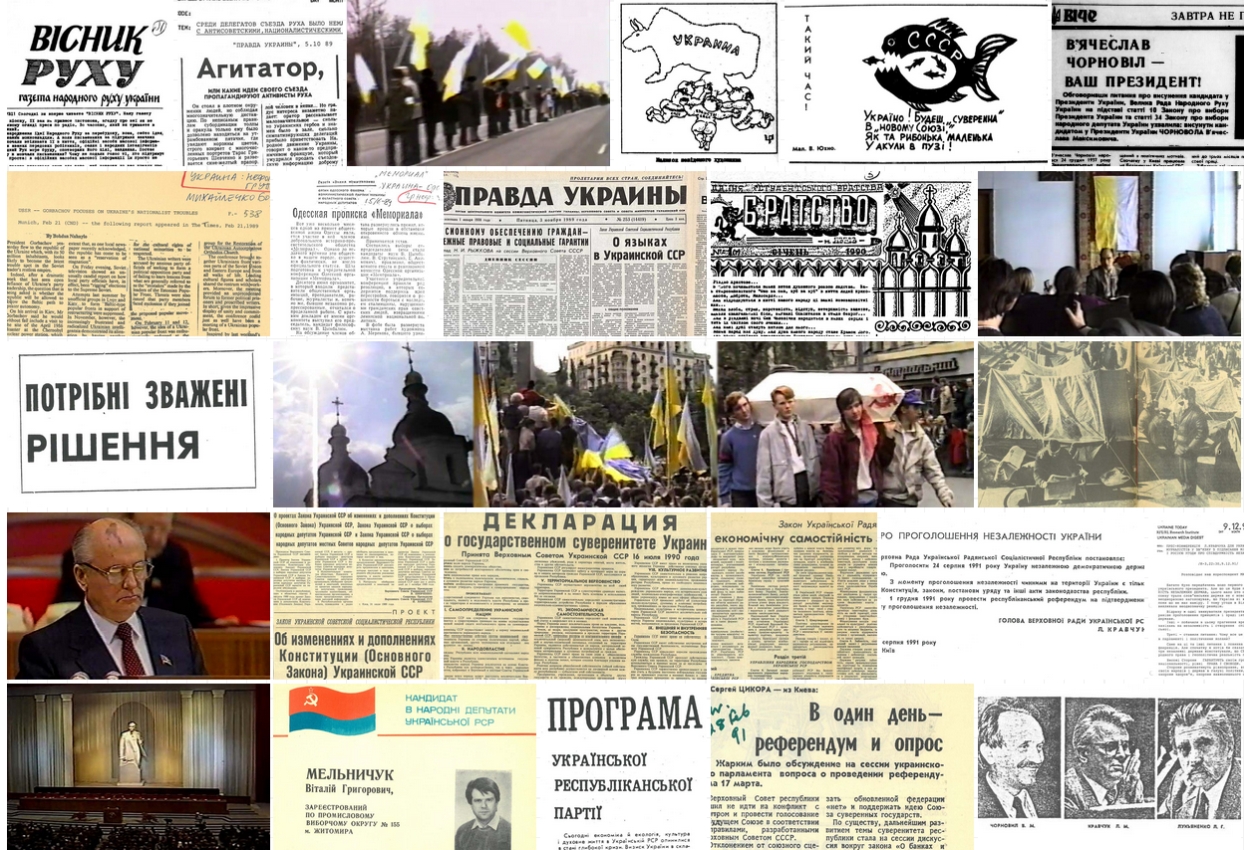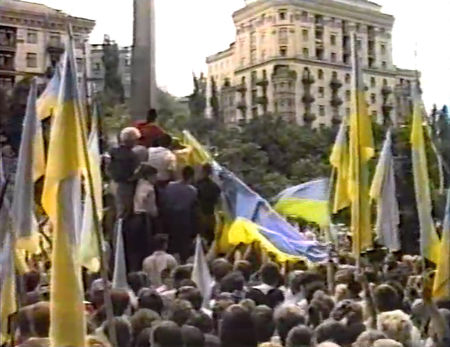On the 10th anniversary of the annexation of Crimea and the second anniversary of Russia’s full-scale war of aggression it led to against Ukraine, the Blinken OSA Archivum raises awareness of the Ukrainian people’s successful struggle for independence in the late 1980s and early 1990s. The new Curated Collection titled Winning Freedom: Ukraine, 1989–1991, published today, reconstructs three crucial years in Ukraine’s transition process based on archival documents from the Archivum’s holdings.
Ten years ago, in February 2014, Russian special forces entered the Ukrainian region of Crimea and seized government buildings. What followed was the annexation of Crimea by Russia, and an open military conflict in eastern Ukraine. Two years ago, on February 24, 2022, Russia launched a full-scale invasion of Ukraine, in violation of international law protecting states’ territorial integrity and national sovereignty. The unprovoked and unjustified war has resulted in devastating loss of life, massive displacement, and critical disruption to the country’s economy.
At this tragic and trying time for Ukraine, it is vital to remember the country’s path to independence. The Declaration of Independence of Ukraine in 1991 was the result of a long and complex process driven by a broad alliance of political and civil movements, active support by ordinary citizens, and historical changes that occurred in the waning years of the Soviet Union.
The archive, serving as a custodian of memory, ensures that the past is not consigned to historical oblivion. The new Curated Collection Winning Freedom: Ukraine, 1989–1991, presenting selected materials preserved at the Blinken OSA Archivum, recounts three years of struggle for independence, and highlights key events in this process: glasnost, social movements, student hunger strikes, political transformations, economic collapse, mass rallies, and much more. These are arranged into five stories, or chapters, which, it seemed to us, most clearly reflect the essence of the political and social transformations that had taken place in those years in Ukraine: “The People’s Movement of Ukraine”; “Social Organizations and Movements”; “Demonstrations and Strikes”; “Acts, Laws, Declarations”; and “Elections and Voting.”
 Winning Freedom: Ukraine, 1989–1991
Winning Freedom: Ukraine, 1989–1991
Accumulated at the Radio Free Europe/Radio Liberty Research Institute as part of its monitoring efforts, many of the selected documents are unknown to the general public. Some were regional newspapers, samizdat publication, or political leaflets, distributed locally and had a limited reach at the time of the events; others were broadcast on Soviet state television, constituting unique, hours-long footages of protests across Ukraine. Curated and provided with commentary by Katerina Belenkina, Archivist at the Blinken OSA Archivum, the collection sheds new light on the way political, ethnic, and professional communities were involved in the struggle for independence, seizing the moment gradually, day by day.
More details here.
To explore the aftermath of the Ukrainian transition process, you can now browse the Ukrainian Monitoring Archives of the Open Media Research Institute (the successor of RFE/RL Research Institute) online. The entire series, comprising 91 boxes of press clippings, news agency releases, and TV and radio monitoring, covering the years mainly between 1992 and 1997, have been digitized and incorporated into the Catalog.


